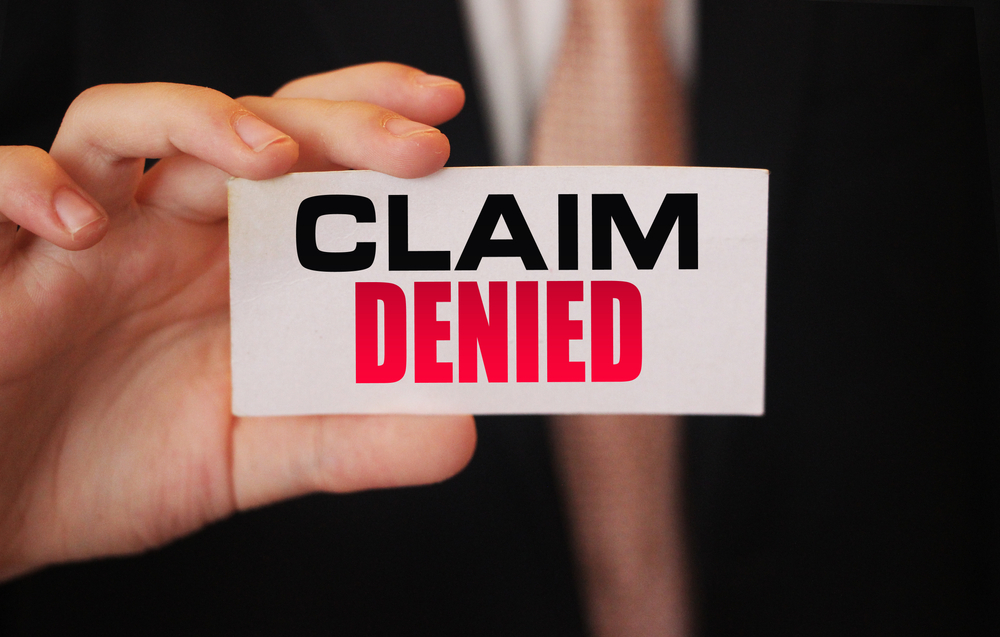If an auto insurance carrier does not pay a claim on your behalf, you can sue them, but do not expect it will be an easy win.
The best advice, experts say, is to have a lawyer review your grievance to determine if you have a rock-solid case to fight an insurance company with deep pockets. And know that if your claim is under $10,000, getting an attorney to even review your case might be challenging.
The goal is to hire a qualified lawyer who has experience in suing insurance companies. And most will not take a case they do not think they can win, according to Autoinsurance.org, a consumer information website. It is a good idea to have more than one lawyer review your case.
Customers are notified by letter if an insurance provider decides to deny a claim. It will give a reason for the denial, such as that a vehicle or driver is not covered by the policy or the policyholder was at fault in an accident. A company might also claim that there was a pre-existing issue with the vehicle, according to Legal Match, a website that helps people find lawyers. “If the policy holder receives such a letter and disagrees with the denial, the policy holder should begin to compile the necessary evidence to support a lawsuit.”
RELATED: Noncompete agreement can make your job search more complicated
RELATED: Pandemic brings more drinking and more legal responsibility for hosts
A customer does not have to agree with the denial. Sometimes, it will take a lawsuit to fix an injustice, Autoinsurance.org says.
“You need to know right off the bat that hiring a lawyer isn’t cheap,’’ according to the site. “If they think that you have a big case for them to win, they will charge you a commission on the back end of the case. What this means is that if you win then they get a percentage of your winnings.” That could range from 30% to 60%, so shop around.
Some lawyers charge by the hour, which means they will not wait for a resolution to collect their fee. Hourly rates usually mean you must pay a retainer up front, which could range from $500 into thousands of dollars.
It is never ideal to hire an attorney for these situations who charges by the hour, said lawyer Amy Bach, executive director of United Policyholders, a national consumer nonprofit focused on insurance.

“Of course, there is a huge spectrum of attorneys in this space,” Bach said. “There are attorneys that advertise on billboards, there are what are called ‘mills,’ law firms that go out and try to convince people to file a lawsuit. And then there are attorneys that will only take catastrophic injury cases. Just like you have law firms that do slip and falls and others that won’t take a case where damages are under $100,000.”
It is important to determine how much you need to get in order to pay your own bills, plus the compensation lawyers will take if they win for you.
“One of the most common questions people have is what is reasonable compensation for the intangible damage, the emotional distress, the fear, the anxiety,” she said. “There is a formula that some use that is the three times actual. In California, if the medical bills are $5,000, then the rule of thumb is you would be entitled to $15,000 for pain or loss of consortium, loss of enjoyment of life.”
For those who cannot afford a lawyer, there are some work-arounds, including consulting with a law student or getting an attorney to agree to only be paid for specific duties, such as writing a letter or filing the paperwork.
“This is a great tactic if you are trying to avoid going to court at all,” Autoinsurance.org says.
There is also mediation, something required by many insurance companies and their preferred method to settle a complaint. In such instances, a professional mediator will work with both parties to find a resolution. Simply put, in mediation you state your case and the outcome you want, and the insurance company does the same. The mediator works to create a deal both parties are willing to accept.
“Most important is to determine if your damages are enough to where you will actually come out ahead once you have to pay fees and costs,” Bach said. “When you are going up against an auto insurer, adjusters are generally trained and experienced in the art of negotiation and the art of getting the claimant to accept less than the full amount they might be entitled to. You’ve got a situation where if you are the victim and you’re trying to settle your claim. You are at a disadvantage if you are not a savvy negotiator.”
Insurance customers are not on a level playing field, she said.
“It is difficult to understand your rights and the harm that has come to you,’’ she said. “It is hard for the average person to negotiate if they have no prior experience. Adjusters have all kinds of tools at their hand to make sure the insurance company is protected in negotiations.”
For those looking just to recover property damage, they might be okay negotiating on their own, Bach said. “Get a fair price for your property and don’t waste money on lawyer fees. But as soon as you get into five figures, it is better to hire a lawyer.
If someone sues, but loses their case, in most instances each party pays their own fees. Most fee agreements protect the client from owing money in such instances.
What you need on-hand
Once you decide to fight an insurance agency’s decision, you need to have a copy of your policy as it was written at the time your claim was filed. The entire case will hinge on the policy and what it states.
The policyholder will also need copies of all correspondence with the insurance company, including emails, letters and forms.
United Policyholders offers this information
- A contingent fee allows you to hire a lawyer without paying out of pocket. The lawyer gets paid a percentage of the amount you recover from your insurance company.
- If you sue your insurance company, you can sue for property damage, medical bills, loss of wages, loss of your home or car, lost opportunities, attorney fees and court costs, among other things.
- More than 90% of lawsuits are settled before trial. Negotiation and mediation usually lead to that settlement.














